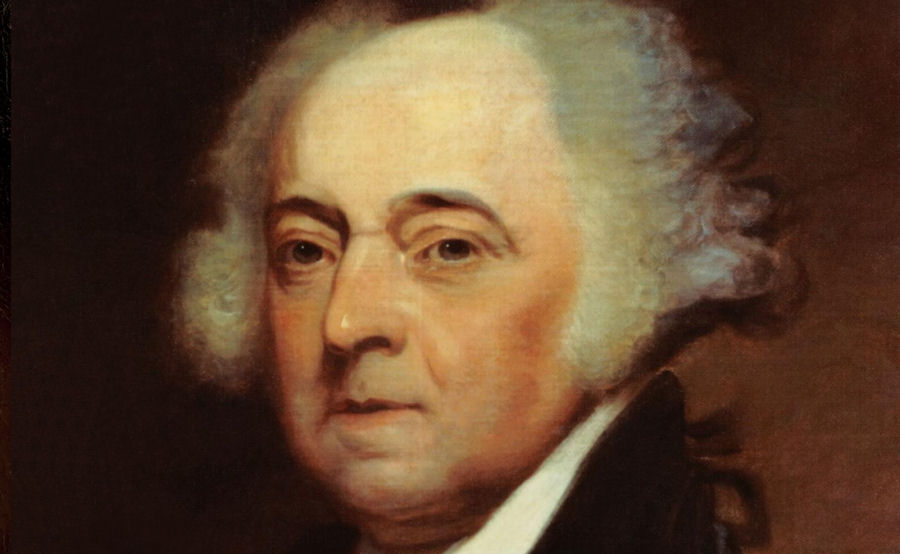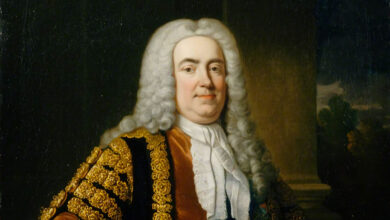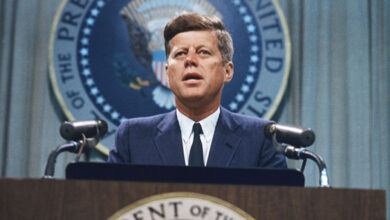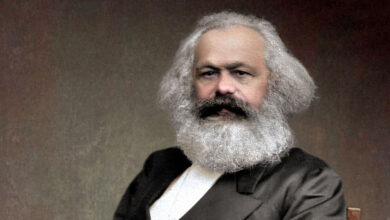
“A government of laws, and not of men” – John Adams
John Adams Biography
John Adams is known as one of the founding fathers of the United States of America, the second president, and the first vice president. He was a statesman, political theorist, and a lawyer who helped lead the American Revolution which created independence from Great Britain.
John Adams was born on 30 October 1735 in Massachusetts Bay, British America. His family came from the Puritans who established a presence in America in the 1630s. His father was a Congressional Deacon, farmer, and militia lieutenant. Since John was the oldest child in the family, his parents wished for him to have a formal education which began when he was six years old at the Dame School for boys and girls, whose main curriculum was the New England Primer.
When he was sixteen, Adams began studying at Harvard in 1751. Although his father wanted him to become a minister, John greatly desired to be a lawyer. Religiously, he became a Unitarian, with extremely different beliefs from those of Puritanism. Instead of joining the French Indian War as many of his contemporaries did, Adams devoted himself to obtaining his license to practice law.
In 1764, John Adams married Abigail Smith, who was his third cousin. Together, they had six children: Abigail, John Quincy, Susanna, Charles, Thomas, and Elizabeth who sadly was stillborn.
Along with many others, Adams heavily opposed the Stamp Act of 1765 which symbolized not only taxes on stamps but other taxes imposed by the British Parliament with no representatives from the Colonies. In 1770, on March 5, British soldiers killed five civilians in what became known as the Boston Massacre. Adams ultimately agreed to defend the soldiers who were arrested on criminal charges and could not find legal representation. Adams ironically won the case and had all of them acquitted.
Throughout Adams’ lifetime, there was mounting tension between Great Britain and the American Colonies. The Boston Tea Party occurred in December 1773 as a demonstration against British taxation without representation. John Adams was a major proponent of the rights of Americans to have jury trials, believing that many courts without a jury were corrupt and unfair.
Adams was then sent as a representative to the First and Second Continental Congresses. In 1774, at the First Continental Congress, Adams confirmed his belief that Americans should have a jury system, quoting that, “…[W]ithout them we have no other fortification against being ridden like horses, fleeced like sheep, worked like cattle, and fed and clothed like wolves and hounds.” At the beginning of 1775, Adams thought that Congress was finally moving away from their relationship with Great Britain.
Over a period of the next 10 years, Americans from each of the 13 states started to create new governing documents adopting many of Adams’ positions.
In 1776, Adams drafted a preamble to the Lee Resolution which was designed for the colonies to have independent governments. Adams believed that the colonies should be free and independent states. Five people including John Adams, Thomas Jefferson, and Benjamin Franklin were commissioned to draft the Declaration of Independence. Although the first draft was mainly written by Thomas Jefferson, Adams did have a role in its completion. After changing the document and editing it, it was officially approved on 4 July 1776, becoming a framework for a free government for over 200 years.
He had quite the political career as well. John Adams served as a diplomat in Europe, specifically as an ambassador to Holland and Great Britain. Adams also served as vice president between the years of 1789 and 1796. He was the first vice president and served alongside George Washington.
In 1796, he was elected as the second president of United States as a federalist. He served as president from 1797 to 1801 and signed the Act for the Release of Sick and Disabled Seamen, authorizing the government-operated marine hospital service. John Adams also signed the Alien and Sedition Acts which made it difficult to become a citizen as an immigrant. The purpose for this was to avoid insurrection and secession from the newly formed 13 states.
Following the death of George Washington, in the election of 1800, Adams and fellow Federalist candidate Charles Cotesworth Pinckney opposed Republican candidate Thomas Jefferson.
Adams, however, narrowly lost by 65 to 73 electoral votes. Near the end of his time as president, Adams was the first president to occupy the unfinished “President’s Mansion”, which would later become known as the White House.
Upon retiring from public life in 1809, John Adams resumed his life of farming, maintaining his political voice, and writing an autobiography that he never finished. He died on the 50th anniversary of the Declaration of Independence, 4 July 1826. Adams died saying, ‘At least Jefferson still lives,” not knowing that Thomas Jefferson had died earlier that exact same day.
Adams abhorred slavery and left a long-lasting legacy as one of the founding father’s of America and as an American patriot.




